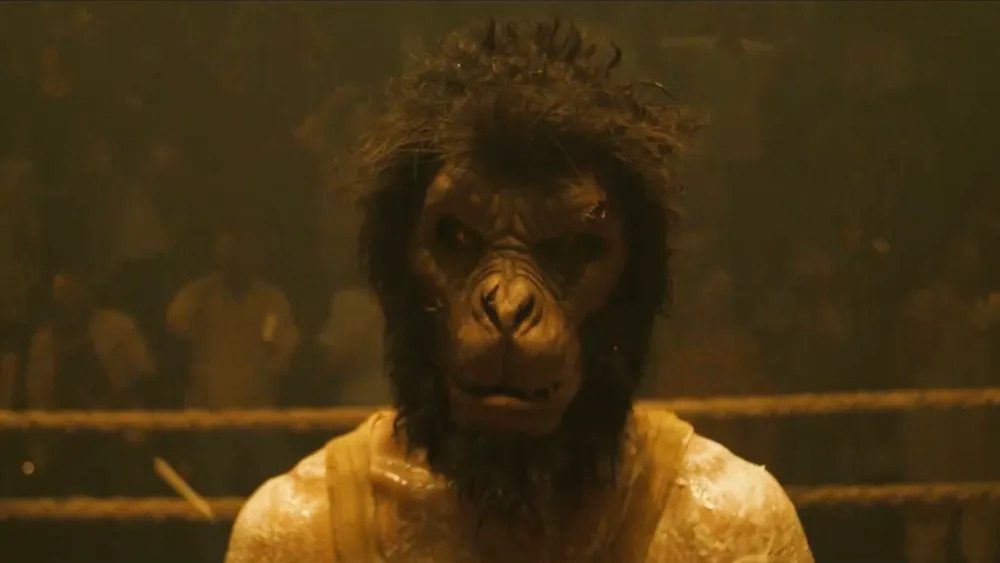Is Monkey Man the Future of Hollywood?
Did you see Monkey Man this weekend? Probably not; the action movie and directorial debut of actor Dev Patel made $10.1 million, coming in second place at the box office to Godzilla x Kong: The New Empire, which made three times as much money in its second weekend. That’s well under predictions, which had it raking in $16-25 million. Monkey Man beat the third-place film, Ghostbusters: Frozen Empire, by a little over $1 million, and that was in its third weekend. As for audience satisfaction, Monkey Man has a B+ CinemaScore, which is not great; it’s on par with Ghostbusters: Frozen Empire, which had a 65% drop in its second weekend. It’s probably not going to do much better domestically, and its international box office – which, as of now, is $2 million from the UK, Ireland, Australia, and Canada – probably won’t add a whole lot to its take.
Why isn’t Monkey Man landing like it was expected to? I have a theory, and it’s mostly due to word of mouth. Here’s the trailer, which looks pretty cool, in my opinion:
And here’s something the trailer left out, courtesy of The Pink News:
“The film follows Kid, who joins a group of trans and gender non-conforming characters to fight the elite oppressing them, with Patel saying that ‘they wage this war for the good and the just.’”
There wasn’t a hint of this in the marketing for Monkey Man; it was sold as “the Indian John Wick,” an action movie about a guy seeking revenge against the corrupt politicians, businessmen, and gangsters who killed his family. I’d venture a guess that a lot of people who saw Monkey Man this weekend prepared for a fun, escapist action flick were not thrilled about having a transgender acceptance message thrown at them. As to whether the movie is woke, I can’t say because I didn’t see it. (I was about to go on Saturday, but something came up, and I had to go home; I then found out about this part of the movie and decided it wasn’t for me.) I use John Nolte’s definition of the term (I don’t remember where he said it originally, but he uses it every so often if you check out his work), which is, “Woke breaks the spell.” That means that woke is not simply a social or political message in a movie but one that doesn’t fit with the story, character, and/or themes, effectively killing your immersion in the film’s world.
For example, Captain America: The Winter Soldier involves things like the government targeting American citizens, a government program in the news at the time, but it’s essential to the story of SHIELD being run by escaped Nazis who’ve decided it’s time to strike against the superheroes who can stop them, Captain America’s character arc of figuring out his place in the modern world, and the theme of the corruption of government institutions. Captain America: Civil War does much the same with the Sokovia Accords, using them as a means through which to examine government regulation vs. individual rights, and this furthers the story of the government trying to control the Avengers and the team’s fracturing, puts Cap in a position where he must stand by his ideals when the whole world turns against him (as it deals with Tony Stark, Natasha Romanov, and others abandoning their principles and being led into disaster), and continues the theme of government institutions being corrupt by adding incompetence and a lack of regulation from the people who should be regulating them: the people they purport to serve. I don’t consider any of this woke because it’s part of the story, just like I don’t consider openly political movies like All the President’s Men, Mr. Smith Goes to Washington, or pretty much anything Oliver Stone’s ever made (I’m being a bit reductive there, but you know what I mean) woke. On the other hand, Carol Danvers stealing his motorcycle because he suggested she smile stops the narrative of Captain Marvel short and makes you think, “Oh, they’re doing this now;” that’s woke.
That’s why I can’t say if Monkey Man is specifically woke or not; I haven’t seen it. Maybe the trans subplot fits with the movie’s story, themes, and character arcs. If so, I don’t think it’s woke, per se. But I do think it sounds like something general audiences don’t want to sit through, especially when they were sold a fun action movie in the John Wick mold. This just furthers the growing belief – do we still call it a “belief” when it’s reinforced seemingly every week? – that Hollywood is constantly trying to pull a fast one on us and force its social messaging on the audience. Whether that’s fair to say about Monkey Man as a film is irrelevant because it was hidden from the audience in the marketing. That is what the word of mouth will likely reflect, and as a result, I don’t think Monkey Man is going to light up the box office in the coming weeks.
However, I think Monkey Man did a few things wisely and will likely either etch out a minor profit or mitigate its losses. First, it cost $10 million to make, which is a small budget for this type of movie. If you’re going to put something general audiences probably won’t like in a film, you do it with one that cost $10 million, not one that cost $200 million – or, for a more direct example, the gay activist comedy Bros, which cost $20 million and made $14 million. If your movie is for a niche audience, you have to expect niche numbers, and although Monkey Man tried to pull the wool over the mainstream’s eyes, it knew what the result would be and budgeted accordingly. Another is that it put a transgender plotline and characters in an R-rated movie targeted at adults; that’s different from Disney sticking a “non-binary” character in a Pixar movie for kids. While people are sure to be annoyed at Monkey Man, it’s not the sinister tactic Disney used with Elemental and other films.
And in this case, hiding the transgender part of the movie was, at least in the short term, probably the smart thing for Monkey Man to do. While the budget was small, the film got a wide release in over 3000 theaters across the country. You’re not going to fill those seats by wearing “trans rights” on your sleeve. Keeping that aspect a secret probably increased its box office haul; it was a calculated decision to get as much money as they could right away before the word got out, and it didn’t work as well as Universal and Dev Patel probably wished it had, but it was their only play. Now, this may have long-term repercussions that everyone involved should have considered, such as the audience losing trust in Universal (which was gaining some goodwill, especially through its DreamWorks releases) and being wary of anything Patel directs down the line. But they’ll deal with that when they have to, I suppose.
This is why I can see Monkey Man’s strategy being adopted by more Hollywood studios in the near future. We’ve seen the diminishing returns their woke movies are bringing in and the dissatisfaction audiences have towards them. So why not make some movies with lower budgets that advertise as being safe from identity politics but secretly have it crammed in there? Let’s face it; these people are not going to abandon their holy crusade anytime soon, and even if they eventually do, they’ll be kicking and screaming the entire time. Disney is imploding because they’ve gone so nuts that they’re proudly advertising their woke nonsense, like making the Silver Surfer a woman in The Fantastic 4. There’s a reason their stock dipped when Bob Iger won the proxy war against Nelson Peltz. When an all-out blitz fails, the next logical step is a series of sneak attacks. And again, this will have devastating long-term consequences, but if Hollywood has proven anything lately, it’s that, much like Lieutenant Eckhardt, they don’t think about the future.
Comments (2)

Yep, and I’m sure that’s by design. Not only does it help keep that a secret, but it saves on more costs the movie probably won’t recoup.








Hadn’t even heard of it until now. You would think that a lack of marketing would hurt it, but in this case it probably would have done worse if there was more buzz about it considering the trans stuff.